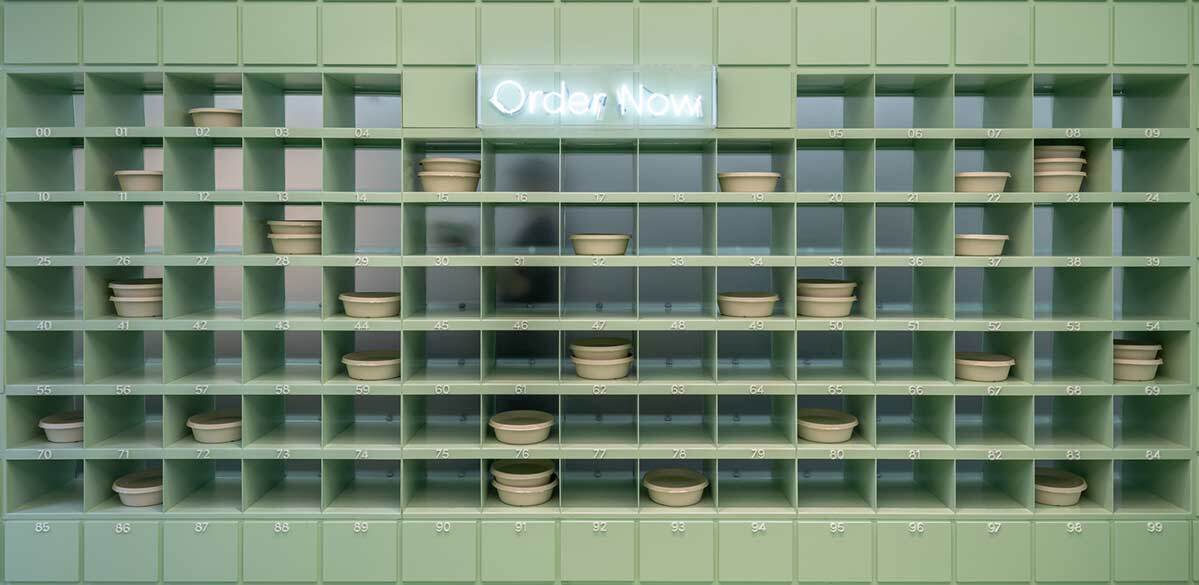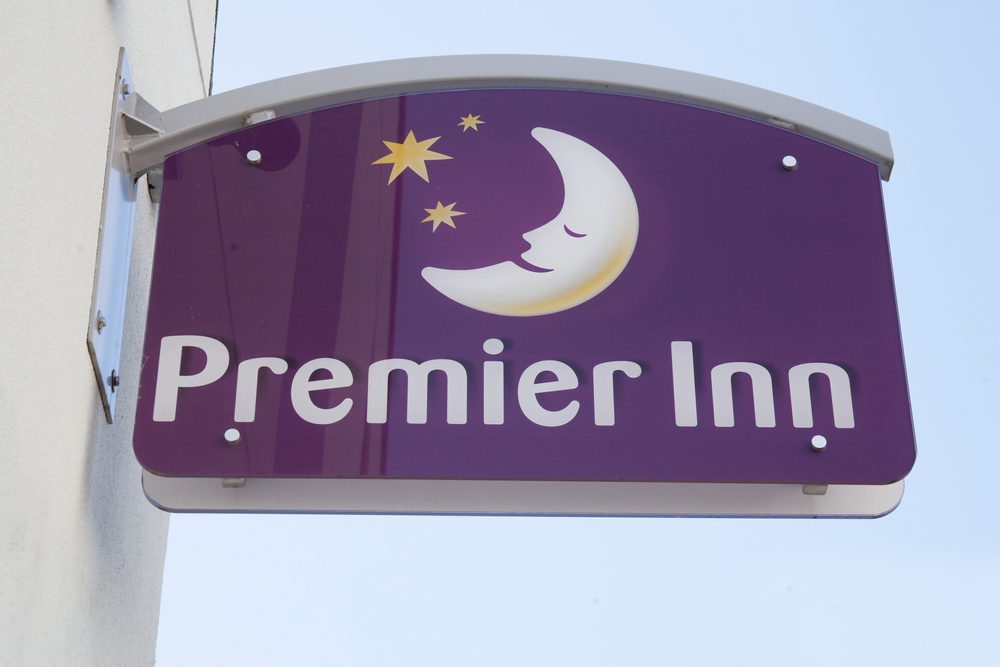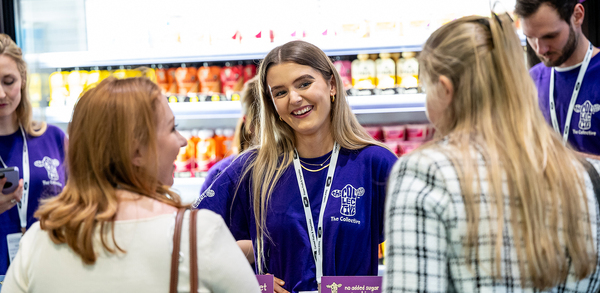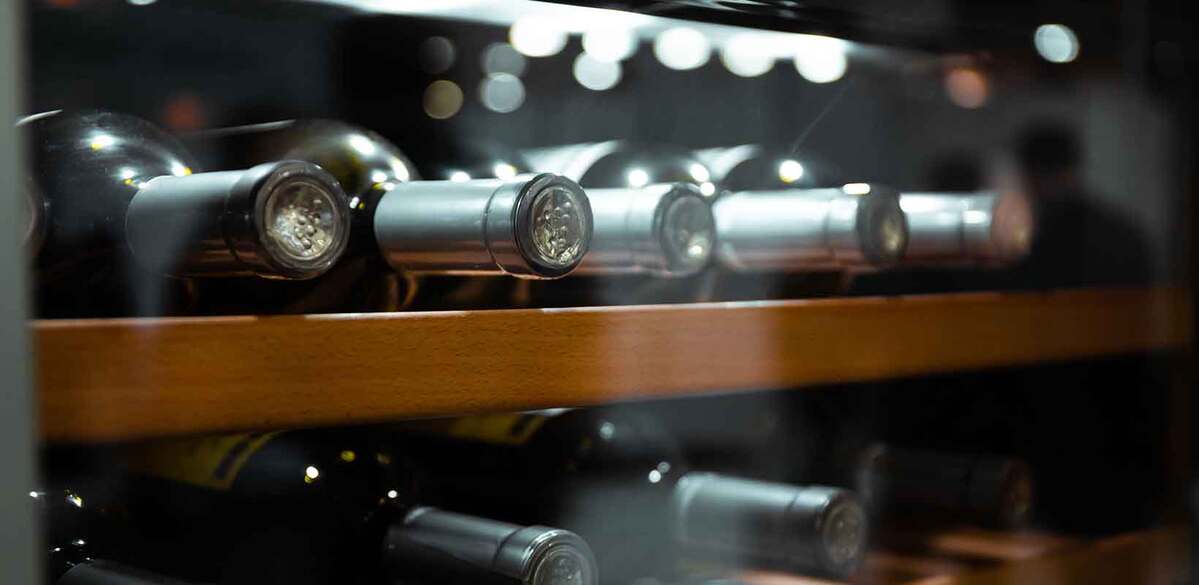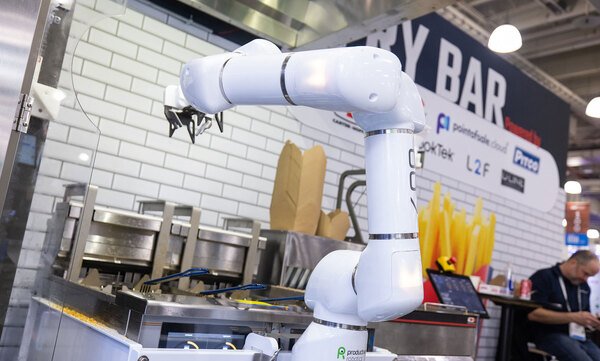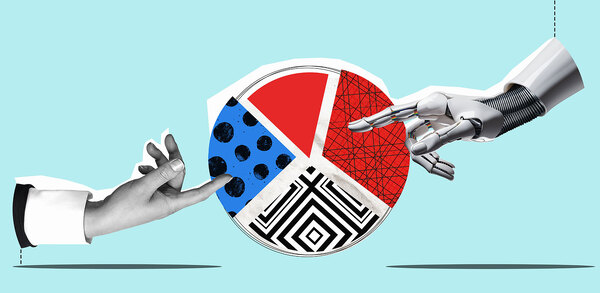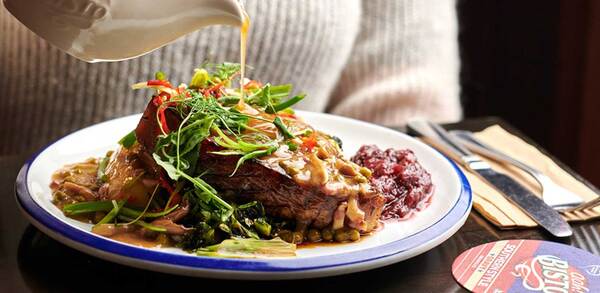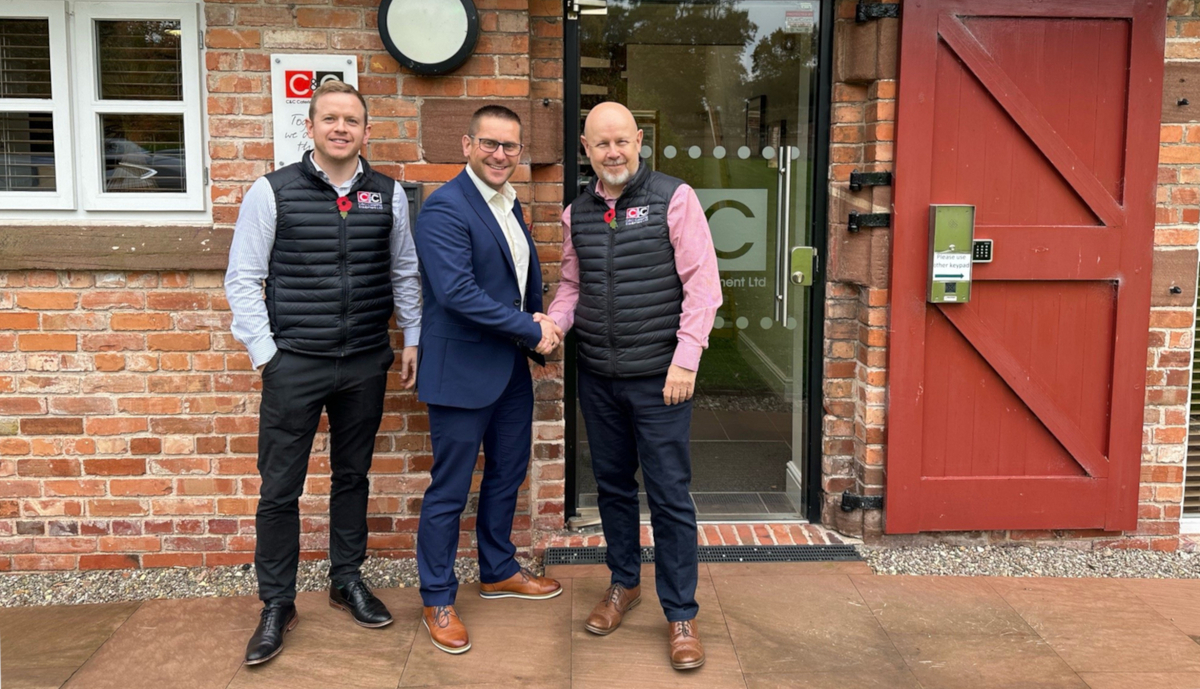Even faster food: how robots are revolutionising restaurants
From automatic check-out in the staff restaurant to robot-made salad bowls, operators are using automation to make the everyday easier
Cost pressures are mounting for all hospitality businesses and nowhere is this felt more acutely than in the cost of labour. However, savvy operators have realised that some of the more monotonous and repetitive everyday processes in running a business can be offloaded onto robots.
However, this move is not about using expensive, shiny robotics that look good front of house. As part of the overall drive to reduce costs, operators need solutions that are affordable. It’s no longer about theatre, but the impact on the bottom line.
The other technology that is playing an increasing role in automation is artificial intelligence (AI), where its analytical capabilities can be used to generate marketing and promotional campaigns as well as automating the management of stock levels and employee rotas.
No doubt the theatrical aspects of automation and robotics will make a return to the industry in better times but, for now, most of the action is found in the use of technology for task processing and where a healthy return on investment is most likely to be achieved.
Common Room speeds up fast food with Kaikaku

Bowl food restaurant Common Room in London is delivering margins four times those of comparable restaurants through its use of automated dispensing technology to create its healthy dishes.
The technology has been developed by Kaikaku, with a team recruited from Michelin-starred kitchens, Ocado and Imperial College London. Josef Chen, founder of Common Room, says the dispensers are each designed to suit certain food types and hold up to 10 ingredients at once. Bowls move on a conveyor belt underneath the dispensers, with people serving customers alongside the automated aspect, enabling the restaurant to handle thousands of orders per hour.
“It has been received very well as people can feel the human connection and they can see their food being put together. It’s not as entertaining as watching a robot arm, but it is automated and much more cost-efficient,” says Chen, who says his solution is 50 times faster and 99% cheaper than rival robotic arm solutions.
A major advantage of the model is that Kaikaku develops all its technology in-house, which means all updates to the technology can be made on-site, and the hardware and software are integrated. This all combines to deliver an efficient model, according to Chen, who says Common Room can achieve margins of 40% versus 10% for regular restaurants. “We can operate at the cost of a café selling coffee and pastries, but we sell £12 bowls, so our revenues are double that of the café’s,” he explains.
As well as giving their orders to staff, customers can also use a QR code, the website, an app and the in-restaurant tablets. Work is also being done on voice recognition for ordering and via WhatsApp.
Chen has plans to open further restaurants and is also considering the possibility of selling the technology to other operators, adding that he is in talks with salad bar chain Tossed about a likely trial. “There are a number of avenues we can take. Common Room is our main avenue, being our own brand, but we’re also a technology company,” he says.
Compass Group gives time back to staff with Autocanteen

Compass Group has launched AI-powered self-checkouts from Autocanteen for the staff restaurant of a banking client in London’s Canary Wharf. The checkouts identify anything from a piece of fruit to a meal plate by using algorithms matched with 3D image scanners that allow them to accurately recognise objects.
The self-service terminals have enhanced speed of service, reduced queues and freed up employees from the monotonous checkout function. Without the need to scan barcodes, the checkout process can be completed in an average of 10 seconds.
The team has been able to trade from day one, with 10,000 transactions exceeding £60,000 in total via four terminals in the first month. Throughput was initially around 10-11 transactions per minute, and now Compass Group has added three extra terminals, this is expected to increase to 16 transactions per minute at peak times. Without the need to manually process up to 700 orders daily, the queues have shortened and the team can focus on improved customer service.
It’s expected that the checkouts will show a significant return on investment of more than 120% from facilitating around 110,000 transactions valued at £700,000 per year and freeing up three people from processing tasks. Most savings will come from deploying labour elsewhere in the business.
The head of corporate services at the banking client says: “The AI self-checkout is a great example of how we’re digitising and improving our colleague experience. The innovative scanning technology means that our colleagues don’t have to scan a single barcode to self-checkout. The system learns from each transaction, meaning that it’s becoming quicker and more accurate by the day.”
Unalome by Graeme Cheevers batch-cooks with with Rational

Fine dining restaurant Unalome by Graeme Cheevers in Glasgow has streamlined and automated its kitchen with technology from Rational. The kitchen has installed the iVario kit, which enables multi-functionality from single appliances, such as the Pro cooker.
Graeme Cheevers, head chef at Unalome, says: “We use the Pro cooker for everything. We use it to bake our own bread and to prepare batches of canapés throughout the day, knowing that they’ll come out exactly as we want them thanks to the programmable recipes.”
The kit’s self-cleaning functionality has also proved popular among the kitchen team: “Not having to hang around at the end of the day cleaning it has been a big hit,” he says. “We just put on the self-clean cycle and go home.”
Scheduled cleaning cycles without staff involvement can be integrated into daily operations, such as between meal services or according to working schedules, and cleaning routines can be programmed based on appliance usage patterns.
The Rational range includes another automatic appliance, the iCombi Pro combi-steamer. Operator select a cooking outcome, such as browning level or cooking level, and the sensors analyse the food’s characteristics – size, quantity and condition – and adjust parameters such as temperature, cabinet climate, air speed and cooking time to achieve it.
Wingshack employs reactive marketing with Big Appetite Co
Chicken wing restaurant Wingshack is using AI to more efficiently run its business across everything from staff rotas to marketing campaigns. Joshua Jarvis, founder of Wingshack, says: “AI is revolutionary. It’s a step ahead of other technologies out there and, for me it, will have a bigger impact than the internet. If you are not using AI, you are shooting yourself in the foot. We can replicate what a big corporate can do with only two people, and we’re using tools already on the market, which is crazy.”
“If you are not using AI, you are shooting yourself in the foot”
Wingshack is reacting to feedback from reviews and comments through ChatGPT as well as using a variety of AI tools, such as transcription programme Otter and workforce efficiency software Nory, to manage its chatbot, inventory and staff rotas by understanding daily patterns and forecasting accurately. This helps save on staff costs and reduces food waste.
Jarvis says he is also running promotions and marketing campaigns using AI tools that help automate the process of collecting data and analysing myriad data points to determine an effective strategy.
His confidence in the impact of AI has led him to create Big Appetite Co, which offers a suite of tools to restaurants to enable them to leverage the value from AI. “At the moment it’s a consulting business using third-party tools, but we are fundraising to bring in our own developers and to hire a chief technology officer,” he says.
How seamless ordering reduces labour costs
Growing numbers of restaurateurs are investigating the automation of processes at the front-end of their businesses to help offset increasing labour costs and boost throughput at busy times.
Emilio Malik, co-founder of Lazeez Lebanese Tapas in London, says he is launching Tahina restaurant in Canary Wharf that will operate autonomously using technology similar to the ‘Just Walk Out’ solution developed by Amazon for some of its convenience stores.
This will involve it using AI-intelligent weight-sensitive shelving and an array of cameras that detect when the plant-based dishes have been taken from the shelves. Since customers will tap their payment card on entry to the restaurant, the whole process from that point on will be seamless.
The initial unit will be 800 sq ft-1,000 sq ft, but Malik can foresee future outlets fitting into a space as small as 300 sq ft-400 sq ft. “The future will be plug-and-play stores in places like hospitals,” he says. The model works on having a central kitchen and the reduced labour costs and efficiency boost will enable its to adopt a price point somewhere between Greggs and Wasabi.

Healthy takeaway restaurant the Salad Project has recently opened a trial small footprint store in the City of London that focuses on promoting order-ahead and click and collect.
Florian de Chezelles, co-founder of the Salad Project, says the split is currently 65% click and collect and 35% order in-store – through tapping on near-field communication chip cards that take customers to the menu and ordering page – but he hopes to ultimately remove the order in-store element. This would significantly enhance the ability of the company to handle the high throughput of orders at the peak lunchtime period. The future model also involves a greater use of the app and the loyalty programme.



